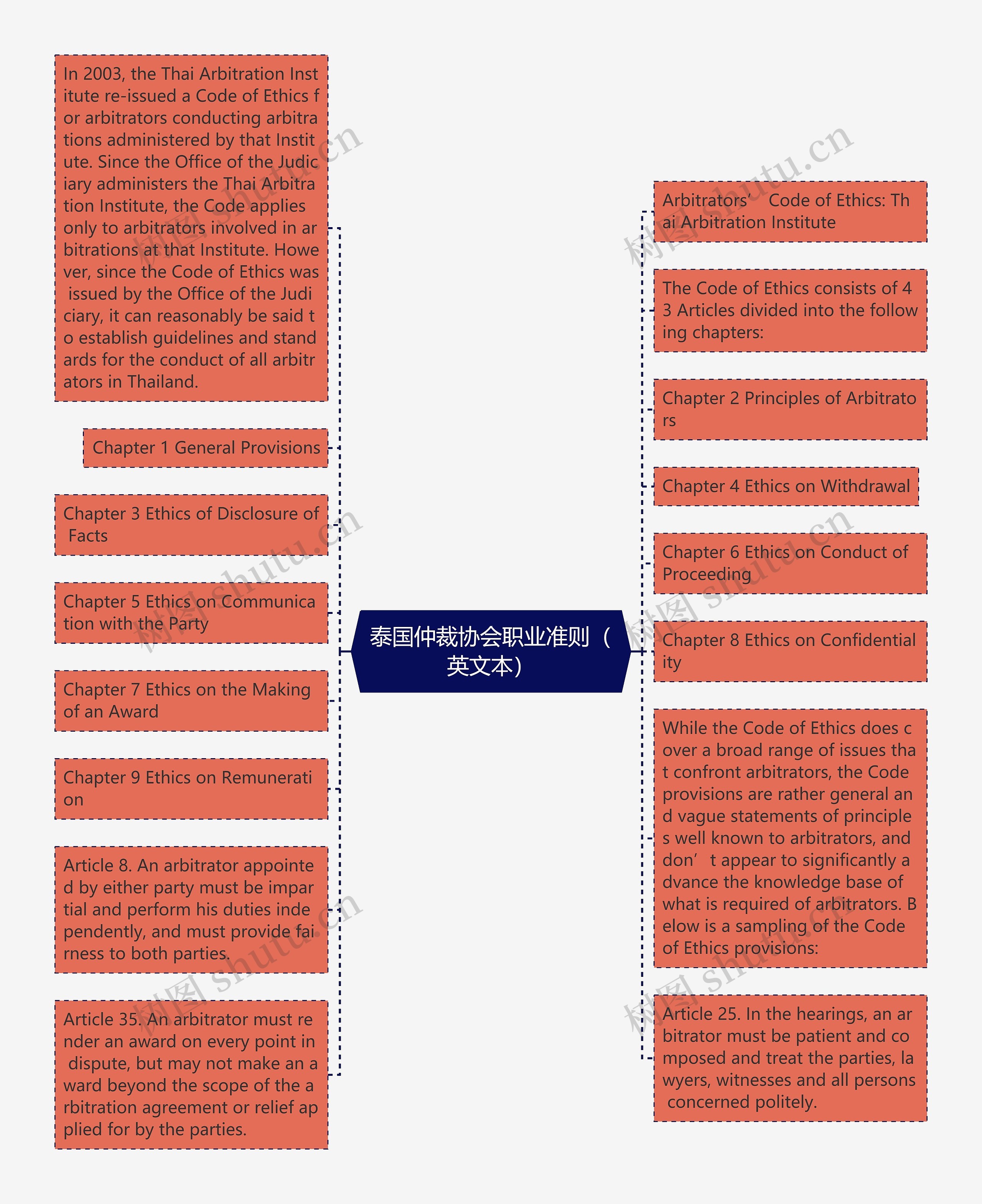Arbitrators’ Code of Ethics: Thai Arbitration Institute
In 2003, the Thai Arbitration Institute re-issued a Code of Ethics for arbitrators conducting arbitrations administered by that Institute. Since the Office of the Judiciary administers the Thai Arbitration Institute, the Code applies only to arbitrators involved in arbitrations at that Institute. However, since the Code of Ethics was issued by the Office of the Judiciary, it can reasonably be said to establish guidelines and standards for the conduct of all arbitrators in Thailand.
The Code of Ethics consists of 43 Articles divided into the following chapters:
Chapter 1 General Provisions
Chapter 2 Principles of Arbitrators
Chapter 3 Ethics of Disclosure of Facts
Chapter 4 Ethics on Withdrawal
Chapter 5 Ethics on Communication with the Party
Chapter 6 Ethics on Conduct of Proceeding
Chapter 7 Ethics on the Making of an Award
Chapter 8 Ethics on Confidentiality
Chapter 9 Ethics on Remuneration
While the Code of Ethics does cover a broad range of issues that confront arbitrators, the Code provisions are rather general and vague statements of principles well known to arbitrators, and don’t appear to significantly advance the knowledge base of what is required of arbitrators. Below is a sampling of the Code of Ethics provisions:
Article 8. An arbitrator appointed by either party must be impartial and perform his duties independently, and must provide fairness to both parties.
Article 25. In the hearings, an arbitrator must be patient and composed and treat the parties, lawyers, witnesses and all persons concerned politely.
Article 35. An arbitrator must render an award on every point in dispute, but may not make an award beyond the scope of the arbitration agreement or relief applied for by the parties.

